Are you an overwhelmed homeschool mom or dad navigating the early stages, unsure how to structure learning for your kindergartener? In this blog post, we'll explore how to make homeschooling kindergarten a magical experience filled with joy, curiosity, and effective learning.
KEY TAKEAWAY
- Embrace play-based learning to nurture your child's natural curiosity.
- Create a warm and inviting learning space that encourages exploration.
- Choose a curriculum that aligns with your child's learning style and interests.
- Incorporate hands-on activities and real-life experiences into your lessons.
- Attend Great Homeschool Conventions for inspiration, resources, and support.
Picture a learning space filled with laughter, wonder, and "aha!" moments. A place where your child's interests and passions are celebrated and woven into the fabric of their education, more individually tailored than public school. Teach kindergarten right, and your kids learn just as much under your roof.
Homeschooling kindergarten is an exciting and transformative journey filled with endless possibilities. As a parent, you have the unique opportunity to create a learning environment that nurtures your child's natural curiosity and love for learning.
However, the overwhelming choices in curricula, resources, and activities can leave you feeling unsure of where to begin - especially with opportunities like online school looming in the background. But fear not! We'll guide you through homeschooling kindergarten, providing you with the tools and inspiration to create a joyful, play-based learning experience that will set your child up for a lifetime of success.
The Importance of Play-Based Learning in Kindergarten
Play is the universal language of childhood, and it's no secret that it holds the key to unlocking your kindergartener's full potential. In the world of homeschooling, play-based learning takes center stage, offering a developmentally appropriate and deeply engaging approach to education. By embracing play as a fundamental tool for learning, you'll be nurturing your child's natural curiosity, creativity, and love for discovery.
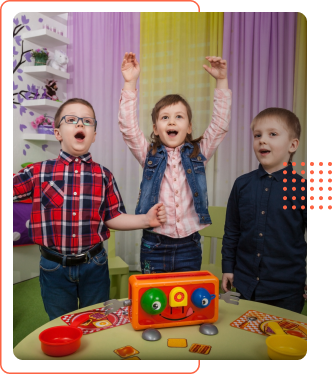
But what exactly is play-based learning, and why is it so crucial for kindergarteners? Play-based learning is a powerful educational approach that recognizes the inherent value of play in a child's development. Through play, children explore their world, develop essential skills, and make sense of complex concepts in a way that is both meaningful and enjoyable. When you incorporate play into your homeschooling kindergarten curriculum, you're creating a learning environment that is both joyful and effective.
Research has shown that play-based learning offers a multitude of benefits for younger kids. It promotes the development of social skills, emotional intelligence, language acquisition, problem-solving abilities, and cognitive growth. When children engage in play, they're not just having fun – they're building a strong foundation for lifelong learning.
So, how can you harness the power of play-based learning in your homeschooling kindergarten journey? The key is to provide your child with a rich and varied array of play experiences that encourage exploration, imagination, and hands-on learning. This can include everything from open-ended play with blocks and puzzles to dramatic play, art projects, and outdoor adventures. By following your child's interests and offering a balance of structured and unstructured play activities, you'll be creating a learning environment that is both engaging and developmentally appropriate.
As you embark on this play-based learning journey, remember that your role as a parent and educator is to be a facilitator and guide. Provide your child with the tools, resources, and support they need to explore, discover, and learn at their own pace. Trust in the power of play, and watch as your kindergartener blossoms into a confident, curious, and joyful learner.
Designing a Joyful Learning Environment
Creating a joyful learning environment is an essential aspect of homeschooling kindergarten. By designing a space that is both inviting and inspiring, you'll be setting the stage for a love of learning that will last a lifetime. Here are some key elements to consider when designing your kindergartener's learning oasis:
-
1.
Choose a dedicated learning space: Designate a specific area in your home for learning activities. This could be a corner of your living room, a spare bedroom, or even a cozy nook in your kitchen. Having a dedicated space will help your child associate learning with a positive and consistent environment.
-
2.
Make it comfortable and inviting: Fill your learning space with soft cushions, cozy blankets, and plenty of natural light. Add some soothing colors and textures to create a warm and welcoming atmosphere. When your child feels comfortable and at ease, they'll be more open to learning and exploration.
-
3.
Incorporate learning centers: Divide your learning space into different learning centers, each focused on a specific subject or skill. For example, you could have a reading nook, a math manipulatives corner, an art station, and a sensory play area. By providing a variety of learning centers, you'll be catering to your child's diverse interests and learning styles.
-
4.
Display your child's work: Dedicate a wall or bulletin board to showcasing your kindergartener's artwork, writing samples, and other creations. Celebrating your child's accomplishments will boost their confidence and make them feel proud of their learning journey.
-
5.
Incorporate nature and natural elements: Bring the outdoors in by adding plants, natural materials, and plenty of sunlight to your learning space. Nature has a calming and inspiring effect on children, and it can help foster a sense of wonder and curiosity.
-
6.
Make it organized and clutter-free: Keep your learning space tidy and organized with plenty of storage solutions. Use labeled bins, baskets, and shelves to store learning materials and supplies. A clutter-free environment will help your child focus on learning without distractions.
-
7.
Encourage independence and exploration: Design your learning space in a way that encourages your child to explore and learn independently. Make learning materials easily accessible and provide plenty of open-ended resources that your child can use to create, build, and discover.
-
8.
Infuse the space with joy and playfulness: Above all, make sure your learning space is a joyful and playful place. Add some whimsical touches, such as colorful posters, fun learning games, and playful decorations. When your child associates learning with fun, they'll be more motivated and engaged.
By designing a learning environment that incorporates these elements, you'll be creating a space that nurtures your child's natural curiosity and love for learning.
Choosing the Right Curriculum
Selecting the perfect kindergarten homeschool curriculum in the best states of homeschooling is one of the most important decisions you'll make as a starting homeschooling parent. By keeping your child's unique learning style, interests, and developmental needs in mind, you'll be well on your way to finding a curriculum that sparks joy and fosters a love of learning.
Understanding Your Child's Learning Style
-
1.
Visual learners: These children learn best through images, charts, and diagrams. Look for curricula that incorporate plenty of visual aids and colorful illustrations.
-
2.
Auditory learners: These learners thrive on verbal instructions and discussions. Consider curricula that include audio components, such as songs, rhymes, and read-alouds.
-
3.
Kinesthetic learners: These children learn best through hands-on activities and movement. Seek out curricula that incorporate manipulatives, games, and physical activities.
Aligning with Your Homeschooling Philosophy
-
1.
Classical approach: This rigorous approach focuses on the Trivium stages of learning: grammar, logic, and rhetoric. Look for curricula that emphasize language, literature, and critical thinking skills.
-
2.
Charlotte Mason method: This gentle approach emphasizes nature study, living books, and character development. Choose curricula that incorporate these elements and foster a love for learning.
-
3.
Unschooling: This child-led approach allows learning to unfold naturally through everyday experiences. Select resources that support your child's interests and passions.
Considering Developmental Appropriateness
-
1.
Emotional readiness: Choose a curriculum that aligns with your child's emotional maturity and attention span. Avoid pushing too hard too soon, and prioritize play-based learning.
-
2.
Fine motor skills: Look for curricula that incorporate activities to develop fine motor skills, such as drawing, cutting, and manipulating small objects.
-
3.
Gross motor skills: Select resources that encourage physical activity and gross motor development, such as outdoor play, dance, and sports.
Embracing Flexibility and Adaptability
-
1.
Eclectic approach: Don't be afraid to mix and match curriculum components to create a tailored learning experience that meets your child's unique needs.
-
2.
Adapt as needed: Remember that no curriculum is perfect. Be willing to adapt and modify activities and expectations as you go along.
-
3.
Trust your instincts: You know your child best. If a curriculum doesn't feel right, don't be afraid to make changes or try something new.
Seeking Support and Inspiration
-
1.
Great Homeschool Conventions: Attend these events to explore a wide variety of curriculum options, go to workshops, and connect with other homeschooling families.
-
2.
Online reviews and forums: Read reviews from other homeschooling parents and participate in online forums to gather insights and recommendations.
-
3.
Homeschooling co-ops and groups: Join local homeschooling communities to share resources, ideas, and support.
Keep in mind that while adhering to state laws is essential, it's equally important to choose a curriculum that aligns with your family's values, beliefs, and educational goals. By finding a balance between legal requirements and your child's individual needs, you'll be setting the stage for a successful and joyful homeschooling journey.
Remember, choosing the right curriculum is an ongoing process. As your child grows and develops, their learning needs and interests may change. By remaining flexible, adaptable, and attuned to your child's unique learning journey, you'll be able to create a homeschooling experience that is both joyful and effective.
Engaging Hands-On Activities and Real-Life Experiences
Bringing learning to life through hands-on activities and real-life experiences is the key to making homeschooling kindergarten a memorable adventure. By incorporating engaging, multi-sensory activities into your curriculum, you'll be fostering your child's natural curiosity, creativity, and love for learning. Let's explore some exciting ways to make learning a hands-on, real-life experience!
Nature Exploration and Outdoor Learning
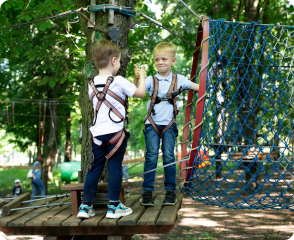
Nature walks and scavenger hunts are a wonderful way to take learning outside. Embark on adventures together, collecting leaves, rocks, and other natural treasures. Use these finds to create art projects, science experiments, and sensory bins. Gardening and plant growth are also excellent opportunities for outdoor learning. Plant a small garden together and use it as a living laboratory to teach about plant life cycles, soil science, and healthy eating. Don't forget to incorporate learning into outdoor play with sidewalk chalk math problems, letter hopscotch, and nature-inspired storytelling.
Cooking and Baking Adventures
Cooking and baking projects are not only fun but also educational. Use these activities to teach basic math concepts like measuring, fractions, and sequencing. As you prepare meals together, discuss the importance of healthy eating habits and explore the different food groups. Take your culinary adventures a step further by cooking dishes from around the world, introducing your child to different cultures, cuisines, and traditions.
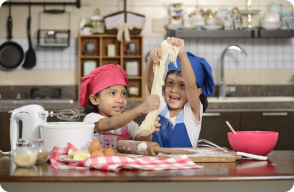
STEM Challenges and Experiments

Encourage problem-solving and spatial reasoning with building challenges using blocks, LEGO, or recycled materials. Conduct age-appropriate science experiments to explore concepts like gravity, buoyancy, and magnetism. Introduce basic coding concepts through unplugged activities and beginner-friendly robotics kits. These STEM challenges and experiments will help develop your child's critical thinking and analytical skills.
Arts, Crafts, and Music
Process-focused art is a fantastic way to encourage creativity and self-expression. Provide your child with various materials and techniques to create open-ended art projects. Incorporate music and movement into your homeschooling routine to develop rhythm, coordination, and listening skills. Sing, dance, and play instruments together. Use dress-up, role-playing, and puppet shows to foster imagination, language development, and social skills through dramatic play and puppetry.

Community Engagement and Field Trips
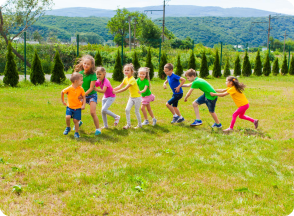
Engage with your local community by visiting businesses and organizations to learn about different occupations and community roles. Explore art, science, and history through interactive exhibits and guided tours at local museums and galleries. Connect with the natural world and learn about animals, ecosystems, and agriculture through visits to nature centers and farms. These community engagement opportunities and field trips will provide your child with real-life experiences and help them understand the world around them.
By incorporating these hands-on activities into your homeschooling kindergarten curriculum, you'll be creating a learning environment that is both engaging and meaningful. Your child will have the opportunity to explore, discover, and make connections between abstract concepts and the world around them.
Attending Great Homeschool Conventions
As a homeschooling parent, you may sometimes feel isolated or overwhelmed by the challenges of educating your child at home. That's where Great Homeschool Conventions come in – these incredible events offer a wealth of resources, support, and inspiration for homeschooling families. Attending a Great Homeschool Convention can be a game-changer for your homeschooling journey, providing you with the tools, knowledge, and community you need to thrive.
Great Homeschool Conventions are held in multiple locations across the United States throughout the year. These multi-day events bring together homeschooling experts and homeschooling families for a jam-packed schedule of workshops, keynote speeches, and exhibitions. Whether you're a seasoned homeschooler or just starting out, these conventions have something to offer everyone.
One of the greatest benefits of attending a Great Homeschool Convention is the opportunity to explore a vast array of curriculum options in person. The Exhibition Hall is a treasure trove of educational resources, where you can browse and compare different curricula and learning materials from a wide range of providers. You'll have the chance to ask questions and get a hands-on feel for what might work best for your child's learning style and needs.
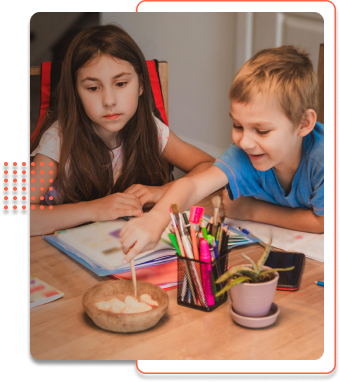
In addition to the curriculum exhibits, Great Homeschool Conventions offer an extensive lineup of workshops led by experienced homeschooling experts. These sessions cover a wide range of topics, from teaching methods and subject-specific strategies to self-care for homeschooling parents. You'll have the opportunity to learn from seasoned homeschoolers, ask questions, and gain valuable insights to enhance your homeschooling approach.
Conclusion
As you embark on this magical homeschooling kindergarten journey, remember that you are your child's best teacher. You have the unique opportunity to tailor your child's education to their individual needs, passions, and dreams. Embrace the joy of learning alongside your little one, and cherish the precious moments of discovery, wonder, and growth that you'll share together.
Frequently Asked Questions

What is the earliest age to start homeschooling?

The earliest age to start homeschooling varies by state and family preference. Some families begin homeschooling from birth, focusing on early learning experiences and parent-child bonding. Others wait until the traditional school age of 5 or 6. It's essential to check your state's homeschooling laws and compulsory education age requirements. Many experts recommend following your child's developmental readiness and interest in learning, rather than adhering to a strict age cutoff. Trust your instincts and choose a starting age that aligns with your family's unique needs and values.

How many hours a day should you homeschool a kindergartener?

The number of hours you should homeschool kindergarten students depends on your child's attention span, learning style, and developmental needs. Most experts recommend short, focused learning sessions of 30-60 minutes per day, totaling around 1-2 hours of structured learning time. However, it's important to remember that learning happens throughout the day, not just during formal lessons. Play, exploration, and real-life experiences are equally valuable for kindergarten learning. Focus on balancing structured activities with plenty of time for play, rest, and family connection. Adjust your kindergarten homeschool schedule as needed based on your child's engagement and progress.

What does kindergarten curriculum look like?

Kindergarten curricula typically focus on foundational skills in language arts, math, science, and social studies, along with opportunities for art, music, and physical development. Language arts may include letter recognition, phonics, sight words, and early reading and writing skills. Math concepts often involve number recognition, counting, basic addition and subtraction, and shapes. Science and social studies are usually explored through hands-on activities, nature study, and community engagement. Many homeschool kindergarten curricula also emphasize character development, social-emotional learning, and fine and gross motor skill development.
 Resources
Resources
 Curriculum
Curriculum
 Workshop Sessions
Workshop Sessions

